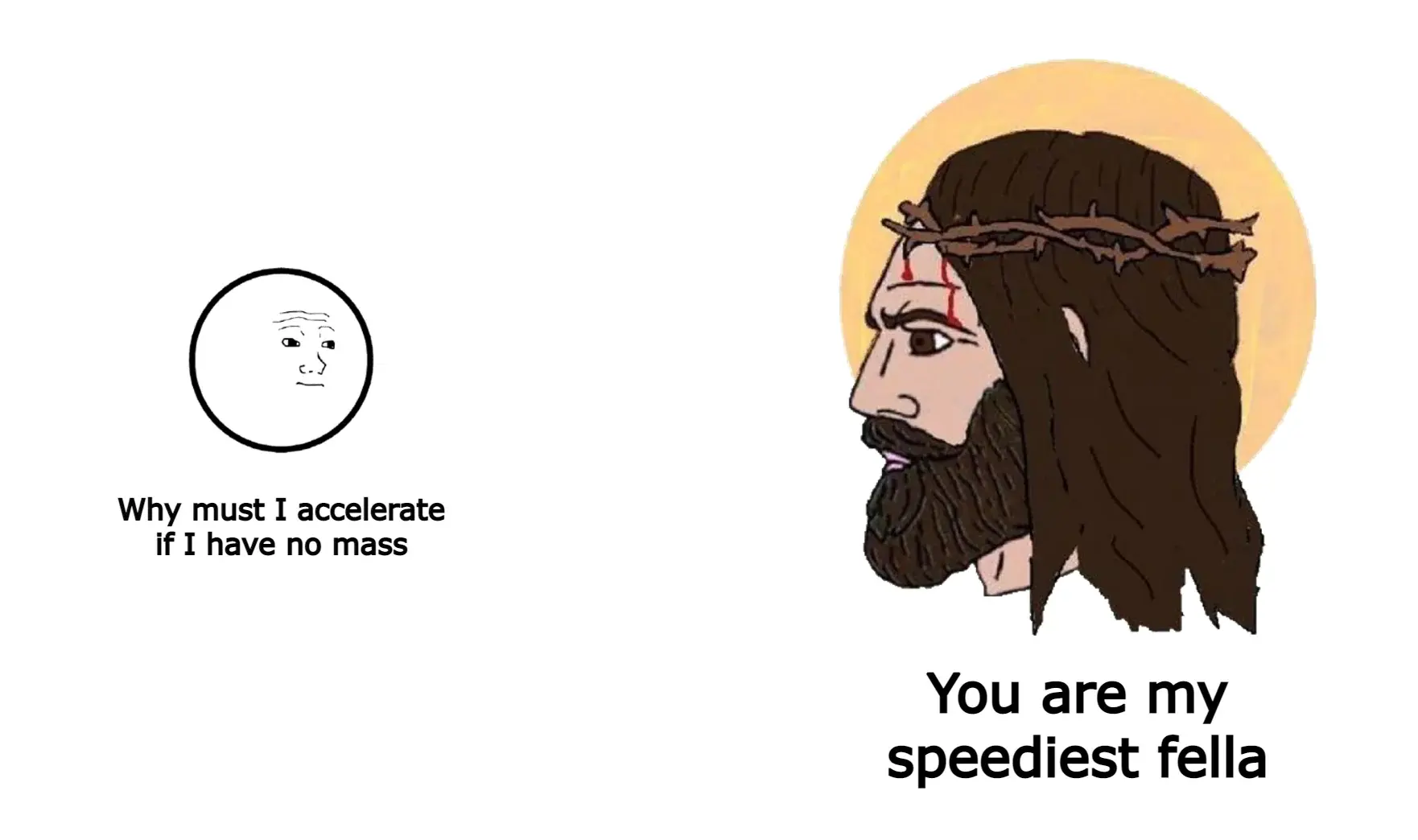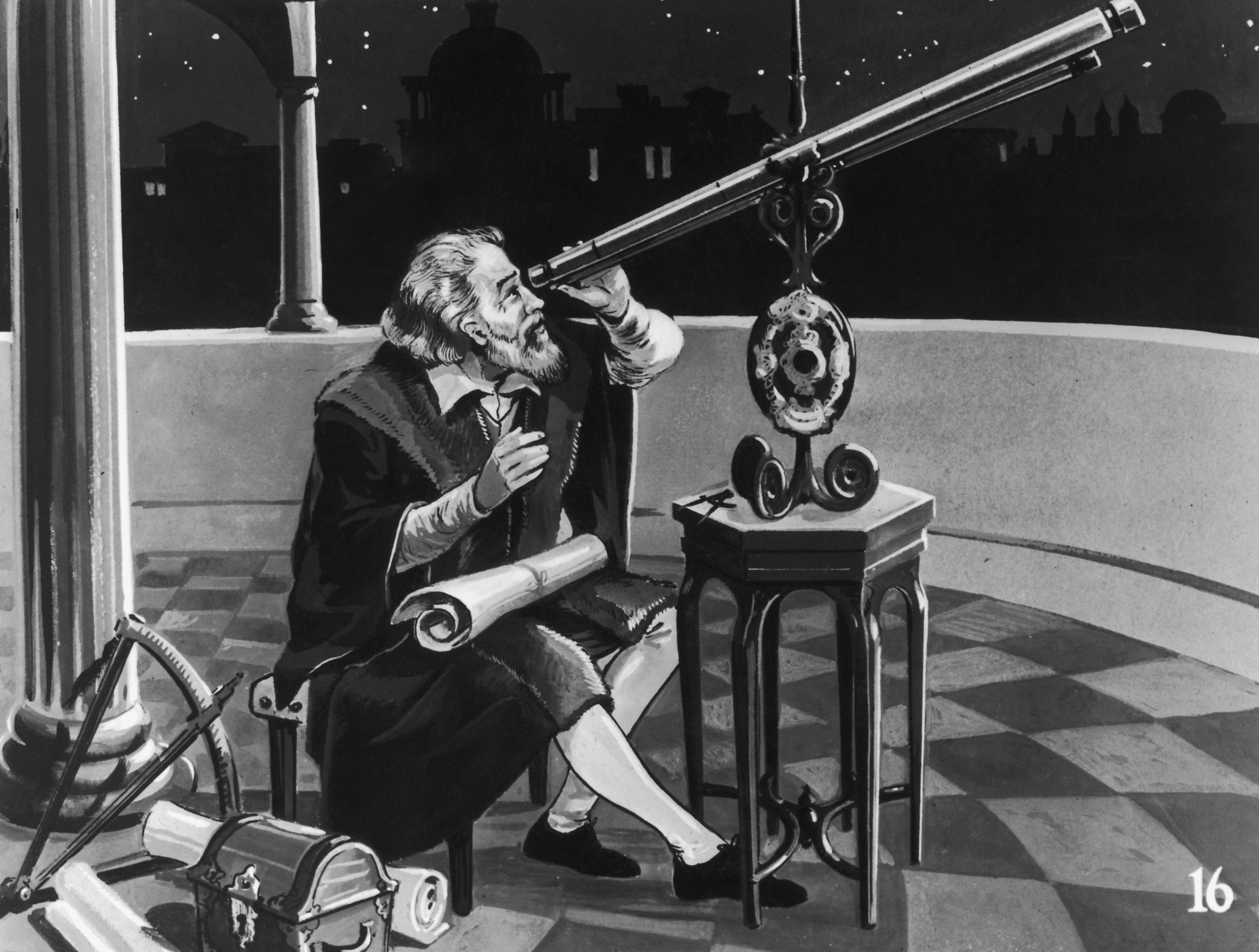this post was submitted on 19 Nov 2023
346 points (93.2% liked)
Science Memes
10988 readers
3142 users here now
Welcome to c/science_memes @ Mander.xyz!
A place for majestic STEMLORD peacocking, as well as memes about the realities of working in a lab.

Rules
- Don't throw mud. Behave like an intellectual and remember the human.
- Keep it rooted (on topic).
- No spam.
- Infographics welcome, get schooled.
This is a science community. We use the Dawkins definition of meme.
Research Committee
Other Mander Communities
Science and Research
Biology and Life Sciences
- !abiogenesis@mander.xyz
- !animal-behavior@mander.xyz
- !anthropology@mander.xyz
- !arachnology@mander.xyz
- !balconygardening@slrpnk.net
- !biodiversity@mander.xyz
- !biology@mander.xyz
- !biophysics@mander.xyz
- !botany@mander.xyz
- !ecology@mander.xyz
- !entomology@mander.xyz
- !fermentation@mander.xyz
- !herpetology@mander.xyz
- !houseplants@mander.xyz
- !medicine@mander.xyz
- !microscopy@mander.xyz
- !mycology@mander.xyz
- !nudibranchs@mander.xyz
- !nutrition@mander.xyz
- !palaeoecology@mander.xyz
- !palaeontology@mander.xyz
- !photosynthesis@mander.xyz
- !plantid@mander.xyz
- !plants@mander.xyz
- !reptiles and amphibians@mander.xyz
Physical Sciences
- !astronomy@mander.xyz
- !chemistry@mander.xyz
- !earthscience@mander.xyz
- !geography@mander.xyz
- !geospatial@mander.xyz
- !nuclear@mander.xyz
- !physics@mander.xyz
- !quantum-computing@mander.xyz
- !spectroscopy@mander.xyz
Humanities and Social Sciences
Practical and Applied Sciences
- !exercise-and sports-science@mander.xyz
- !gardening@mander.xyz
- !self sufficiency@mander.xyz
- !soilscience@slrpnk.net
- !terrariums@mander.xyz
- !timelapse@mander.xyz
Memes
Miscellaneous
founded 2 years ago
MODERATORS
you are viewing a single comment's thread
view the rest of the comments
view the rest of the comments

Does a photon actually accelerate? Sure seems like it always goes at light speed through whatever medium from its creation.
well, if it get reflected and change direction it going to be at light speed, so it can be interpreted (probably incorrectly lol) that it "accelerated instantly to the other direction after the reflection"?
This is an interesting question. Instant acceleration is mathematically implausible, but I don't know if there's a better physical interpretation for what happens to a bouncing photon. I'm guessing this is one of those "less particle, more wave" situations where the instantaneous velocity of the photon is undefined.
According to some random internet sources, reflection is the not-quite-instantaneous process of the photon being absorbed and then emitted by the electrons in the mirror.
As a rule, it’s probably best to avoid “random” internet sources on matters of how light works because there’s so much confidently parroted misinformation out there. For example, this is completely wrong: https://youtu.be/FAivtXJOsiI See here for correct answers to that issue: https://youtu.be/CiHN0ZWE5bk
For how mirrors work see this: https://www.scientificamerican.com/article/what-is-the-physical-proc/ https://youtu.be/rYLzxcU6ROM
There's a hard rule about quantum physics. It goes: "it's all fun and games until you're at the Quantum level, then everything is all fucked up"
According to what we know, electrons don't "move between" energy states on an electron, they're just in one one moment and another the next. That's so disconnected from reality we perceive it still breaks my brain.
wait, so it's like a floating-point precision error but with quantum mechanics?
This is acceleration with no mass and no resistance to medium.
Photons are born and die at c. They experience no time and have no frame of reference.
The loneliest of experience.
The speed of light is different depending on the medium though isn't it? So to change speed I would have thought some acceleration would have to be involved.
I have no idea what I'm talking about though.
It's not. The wave front moves slower. Because when light moves through matter it's getting absorbed and reradiated.
That's neato, thanks for the science fact
https://www.wtamu.edu/~cbaird/sq/mobile/2014/06/26/how-does-a-photon-accelerate-to-light-speed-so-quickly/
The fact that light cannot change speed is one of the core axioms of relativity
That's light as an aggregate wave. Photons, actual light, always travel at c. What's happening in a medium is the rapid absorption and readmission of photons. The probability of admission is based on structure of material causing things like lens or mirrors to work.
You can think of it as the photons having to jump between platforms before the can continue running at c.
That’s an intuitive model, but unfortunately it doesn’t have the advantage of actually being correct. Photons are not being absorbed and reemitted. See here for why: https://lemmy.world/comment/5444224
That is wrong. Stochastic yes. Photons emission is probabilistic. Destructive interference causes emission to overwhelming follow classical wave theory. Here's a better explanation with a neat graphic.
https://physics.stackexchange.com/questions/466/what-is-the-mechanism-behind-the-slowdown-of-light-photons-in-a-transparent-medi
It sounds like you’re conflating different concepts. A stochastic process like absorption/reemission would blur the light, so that’s not it. And the linked explanation is basically correct (in classical physics at least), but it doesn’t corroborate what you originally claimed as that’s not necessarily requiring absorbing anything. Photons can jiggle the charged particles in glass and get them to make new phase shifted light despite not being absorbed.
https://youtu.be/YW8KuMtVpug
https://youtu.be/CiHN0ZWE5bk
reject reflectors return to long tubes
Interference in matters structure causes classical wave like behavior.
But doesn’t relativity explicitly state that c is the speed of light in a vacuum, and travelling through other mediums explicitly changes and is explained by relativity?
I am 100% a layman and do not know the answer.
Not really no. Special relativity explains the relationship between space and time. General relativity expands on this to account for gravitation.
One of the postulates (i.e. assumptions) of relativity is that the speed of light in vacuum is the same for all observers. But the theory doesn't actually require any particular value for c, it only needs it to be constant. And it doesn't explain the behavior of light in a medium at all.
In fact, relativity doesn't explain the mechanism by which light interacts at all, that is the domain of Quantum Electro Dynamics.
Wow that is so interesting. So am I understanding that relativity explains space, time and gravity’s interactions with one another, while quantum science explains interactions with much smaller objects like matter?
the speed of light expressed in units of distance per time, is a dimensionful quantity so it probably doesn’t mean anything to say some theory does or does not predict a value for it. The value is entirely determined by how big you choose your yardsticks and sundials to be, which is arbitrary convention.
It is only meaningful to talk about theoretical predictions of the values of constants if they are dimensionless, like the fine structure constant.
However relativity does suggest as a natural point of view that space and time are just orthogonal directions in a unified spacetime. In this point of view, relativity gives you the option of measuring your timelike and spacelike coordinates with the same yardstick (which you may still choose arbitrarily). And then relativity does predict its value. It’s 1. No units.
This is how I feel every time I touch any non-basal physics topic.
I swear this made sense once upon a time....
No, they don't. They can get absorbed and re-emitted, and the space they are moving though can compress sideways. But they can't make curves at all.
That's basically all that refraction is. A dead giveaway is that light doesn't move at the speed of light in them.
Yes.
Don't think about individual photons. Think about billions of them with destructive and constructive interference. The probabilities of all the sitting l additive waves of light.